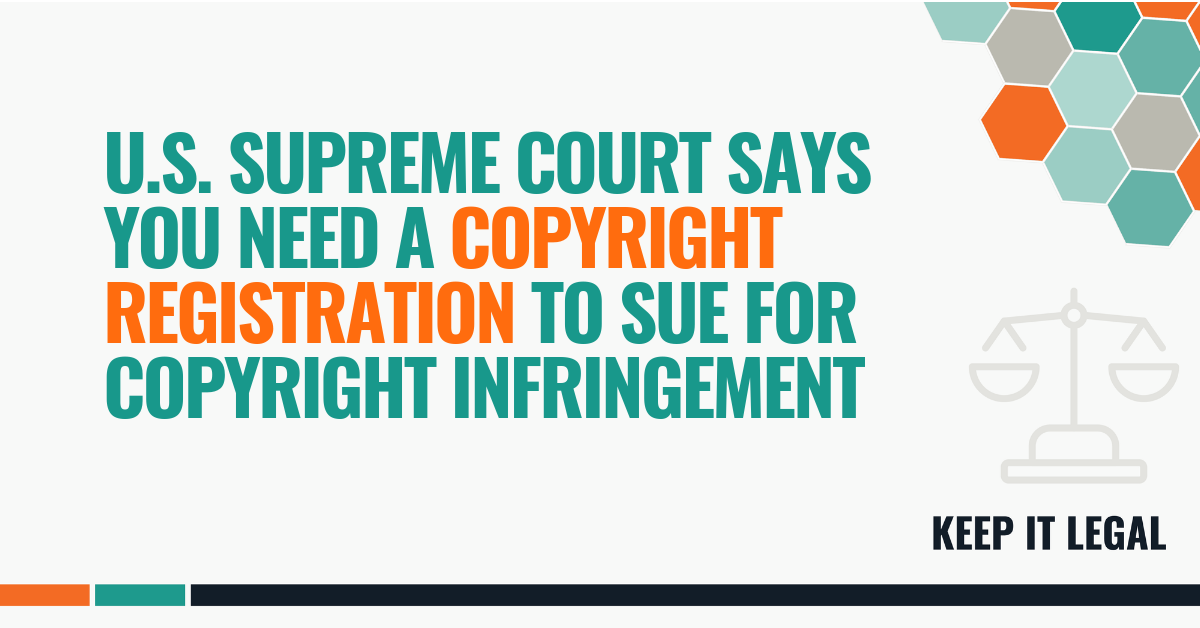While the rest of the country engages in endless battles over the Supreme Court, the Justices themselves recently got together and rendered a unanimous verdict: in order to sue someone for copyright infringement, you need a copyright registration which has been officially issued by the United States Copyright Office.
The relevant part of the Copyright Act, 17 U.S.C. §411(a), states that “no civil action for infringement of the copyright in any United States work shall be instituted until . . . registration of the copyright claim has been made in accordance with this title.” That sounds pretty straightforward, right?
It turns out, however, that lawyers are clever, and so there’s been a years-long dispute about what “registration” means in that context. Some parties have claimed that “registration” means simply that the plaintiff has applied for a registration with the U.S. Copyright Office.
There is a bit of practical logic behind this position. The U.S. Copyright Office gets backlogged. In my years of practice, I’ve seen it take up to 18 months for a copyright registration to issue. However, the Copyright Office does have a “Special Handling” option which provides expedited review and registration in certain circumstances, including pending or prospective registration.
Nonetheless, several federal courts had agreed with the “registration = application” logic. Other federal courts held that “registration = registration”. So there was what’s referred to as a “Circuit Split” – the various federal circuit courts disagreed on a matter of law, and the Supreme Court had to step in to resolve the dispute.
A company called Fourth Estate relied on the “registration = application” theory in the case that made it to the Supreme Court, Fourth Estate Public Benefit Corporation v. Wall-Street.com. Briefly, Fourth Estate published news articles. Wall-Street.com displayed the text of those articles without permission. Fourth Estate filed a copyright application to protect the articles and then filed a lawsuit for copyright infringement a few days later. Notably, the Copyright Office had not issued Fourth Estate a registration certificate.
Wall-Street.com requested dismissal of the case on the grounds that Fourth Estate did not have a registered copyright and therefore lacked standing to sue under the Copyright Act. The case made it to the Supreme Court, and, as noted above, the Court unanimously held that “‘registration . . . has been made’ within the meaning of 17 U. S. C. §411(a) not when an application for registration is filed, but when the Register [meaning, the Copyright Office] has registered a copyright after examining a properly filed application.”
Copyright lawyers, including myself, will tell you that copyright applies immediately upon creation of a copyrightable work. 17 U.S.C. § 102(a): “Copyright protection subsists, in accordance with this title, in original works of authorship fixed in any tangible medium of expression…”
So you enjoy all the rights embodied in a “copyright” as soon as the work is created…except the right to sue for infringement. For that, you need a copyright registration. And now we know for sure what “registration” actually means.
The moral of the story is: if you’re concerned about copyright infringement and you may want to sue to protect your rights or recover damages, don’t wait to register your copyrights.


